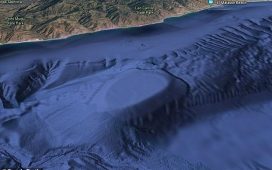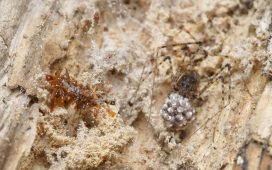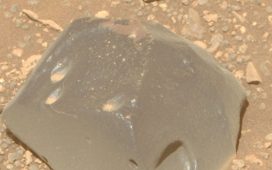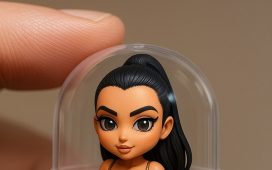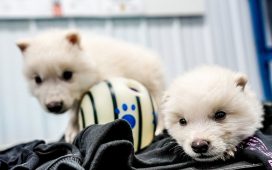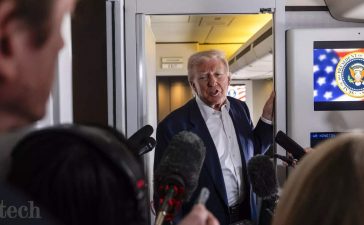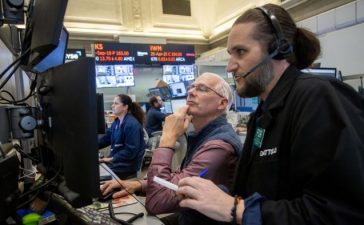By Stacy Liberatore For Dailymail.com and Reuters
20:36 09 Feb 2023, updated 21:09 09 Feb 2023
The US Department of Transportation (DOT) is said to be investigating Elon Musk‘s Neuralink over claims the company illegally transported hazardous pathogens.
The probe is in response to allegations from the Physicians Committee of Responsible Medicine (PCRM), which state Musk’s company unsafely packed and moved implants removed from the brains of monkeys that may have been infected.
PCRM, an animal-welfare advocacy group, wrote to Secretary of Transportation Pete Buttigieg earlier on Thursday to alert it of records it obtained on the matter from the University of California (UC) Davis, according to Reuters.
The letters state that the implants were not properly sanitized and packaged, thus carrying pathogens that could cause serious health issues in infected humans.
The lasted investigation follows months of allegations against Neuralink, which is said to have violated animal welfare laws with ‘botched experiments.’
DailyMail.com has contacted Neuralink and DOT for comment.
Neuralink is a brain-implant company working on technology for people with paraplegia, which would help them control computers with their minds.
While the technology brings hope to hundreds of thousands worldwide, Neuralink’s implant development has been controversial.
PCRM shared the letters from UC Davis, where Neuralink’s experiments were held, with Reuters.
The documents state the potential breaches of hazardous material transportation regulations in 2019, a year before Neuralink stopped working at the university.
The letters begin with a statement on January 16, 2019 in which a UC Davis employee emphasized the importance of training staff on the safe transport of ‘biohazardous materials.
According to the letter PCRM shared with DailyMail.com, the employee wrote: ‘I wanted to let you know that DOT and California code of regulations requires all staff involved in the packaging and transport of hazardous material be trained hazardous material handlers.
‘Fines for untrained shippers transporting materials can be significant, up to $5,000 per infraction.’
On March 4, 2019, lab notes state that a six-year-old female monkey was killed at the university following experimentation.
The monkey had received implants four months earlier and a month before the animal’s death, staff noticed a discharge seeping from the head implant.
The staff believed it ‘was likely a Staphylococcus infection,’ PCRM shared in a statement.
PCRM continued to explain that this monkey, dubbed Animal 13, was kept alive on a ‘a cocktail of medications including antibiotics, probiotics, and pain-relieving drugs’ until ‘she was sacrificed.’
On March 4, Animal 13 was killed and a necropsy was performed, showing ‘evidence of bacterial meningitis and confirmed the presence of many bacteria, including Staphylococcus, Klebsiella, and Corynebacterium ulcerans.’
PCRM states that the devices pulled from the monkey’s brain were shipped from UC Davis to a Neuralink facility.
Another email, dated March 13, 2019, titled ‘Transport of biological substances’ suggests that Neuralink may have failed to follow legal requirements in transporting materials on March 4.
The sender, who was not named, wrote: ‘Over the phone, you mentioned that the explanted hardware from [redacted but likely a reference to Animal 13] was packaged by [redacted] and translocated off site to a [Neuralink] location.
‘[Redacted] has provided the training link (see below) to distribute to your personnel to allow translocation of hazardous material off site from the Primate Center. Packaging of hazardous material (e.g., monkey contaminated hardware) needs to be performed by a trained hazardous material handler along with a completed Biohazard Notice & Acknowledgement form.
‘The form ensures that the Biosafety Officer at your institution is aware of the arrival of hazardous materials and is equipped with a BSL level 2 lab.’
The message continues to explain that the hardware components of the explanted neural device were not sealed or disinfected before transport.
‘This presents a hazard for anyone potentially coming in contact with the device. Simply labeling it ‘hazardous’ doesn’t account for the risk of potentially contracting Herpes B,’ the email concluded.
A similar incident is said to have occurred on March 15, 2019, following the death of a 10-year-old female identified as Animal 11.
The animal received implants three months before death, but the surgeon used a ‘gelfoam’ to fill in the gaps around the implant.
Lab notes show that the head implants became infected and a microbial analysis showed that Animal 11 had Staphylococcus and Enterobacter infections.
‘Another report from March 5 confirmed the presence of Staphylococcus, Enterococcus, and ‘very rare extracellular coccoid bacteria forming short chains’,’ PCRM shared.
On March 15, staff killed Animal 11.
A necropsy revealed that she had been suffering from an ‘acute hemorrhage’ in her brain and that her cerebral cortex was ‘tattered.’
The implants were then transported from UC Davis to a Neuralink facility
PCRM wrote to the DOT because this governmental agency is responsible for regulating the transportation of hazardous materials, including infectious substances known or reasonably expected to contain a pathogen.
The animal advocacy group does note that ‘UC Davis employees were concerned about the unsafe packaging and transport of hardware potentially containing pathogens from the university to a Neuralink facility and back to UC Davis.’
Deborah Dubow Press, Esq., associate general counsel with the Physicians Committee, said in a statement: ‘The records suggest that Neuralink’s sloppy practices pose a danger to public health and safety.
‘In addition to investigating the incidents at UC Davis, DOT should scrutinize safety practices at Neuralink’s California and Texas facilities where animal experiments are ongoing.’
Ryan Merkley, director of research advocacy with the Physicians Committee, added: ‘How many federal agencies need to investigate Musk and Neuralink before they clean up their act?’
‘He pointed to open investigations into the company by the U.S. Department of Justice and US Department of Agriculture Office of Inspector General.
DailyMail.com had previously obtained Neuralink lab notes that detail how a sealant was placed on the surgical holes, causing the monkey’s brain to swell and hemorrhage
In December, a former Neuralink employee who worked as a necropsy technician told DailyMail.com, ‘There was no reason to use it.
‘BioGlue was not FDA-approved for brain surgery and would never be able to be carried over to human trials. I cannot see something not approved on humans be used on primates.’
The neurosurgeon, Matthew MacDougall, developed the BioGlue and instructed staff to administer 15 to 20 milliliters when it should have been three to five, the person familiar with the matter said.
Handwritten lab notes show MacDougall ordered the monkey to be kept alive for days even though the animal ‘was declining postop and was ‘probably from cerebral edema.’
This monkey is just one of many animals ‘ sacrificed’ during Neuralink’s experiments, which helped the company develop its brain chip that Musk demoed last month while revealing it should be ready for human trials in the next six months.

